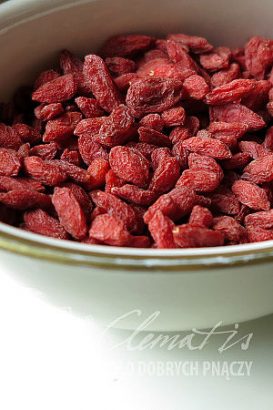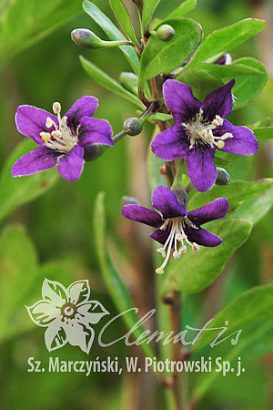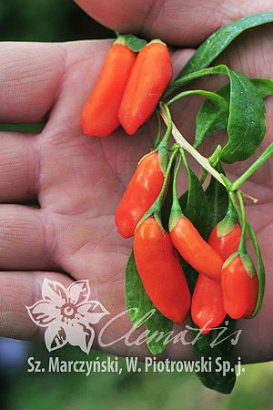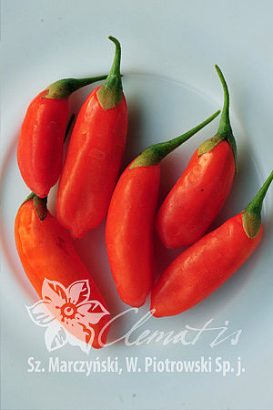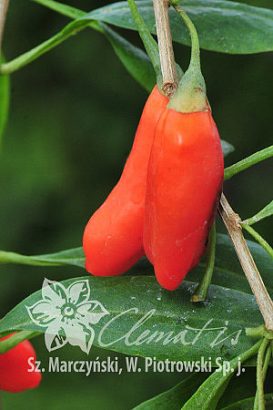Lycium barbarum ‘No.1’
goji berry 'No.1'| Decoration form | flowers, fruits |
|---|---|
| Color of flowers | --- |
| Flowering month | VI, VII, VIII |
| Annual growth | --- |
| Aspect | sun, 3/4 sun, 1/2 sun, 1/4 sun |
| Frost hardiness | Zones 5 - 8 |
| Density on 1m2 | --- |
| Evergreen plant | no |
Nutritional and decorative plant used for centuries in the traditional Chinese, Korean, Japanese and Tibetan medicine. Its main attraction are orange-red fruits, commonly known as Goji berries. ‘No.1’ cultivar’s fruit are bigger (2,5 cm) and sweeter than the species fruit. They ripen from August to October. Ripe berries are edible, tasty and sweet. They come third on the list of vitamin C-rich plants with 2500 mg per 100 g value. They are also rich in vitamin B and vitamin E as well as in microelements: zinc, iron, copper, calcium, germane, selenium and phosphorus. Goji berries contain 21 minerals and 19 amino acids. Fructification starts 2-3 years after planting. The plant is frost hardy, undemanding and tolerant – it will grow even in poor soil. It prefers sunny areas. The shoots can be trained like the climbing rose over supports, e.g. trellises, or left without support to arch gently. Leaves: Gray-green Flowers: small, scarlet, VI-VIII Fruit: Orange-red, VIII-IX Maximum height: 2-2,5 m Planting and maintenance: immerse plant containers in water for 10-30 minutes. Fill the bottom of a 40x40x40 cm hole with 10 cm of well-rotted manure or compost, supplement with good soil and place the plant 1 cm deeper than it was in the container. Provide at least 30 cm intervals from other plants or walls. Cover the soil surface around the plant with bark, in April fertilise with Osmocote 5-6 M, Water during growing season. Pruning: not required, performed only when the plant outgrows its intended space.

